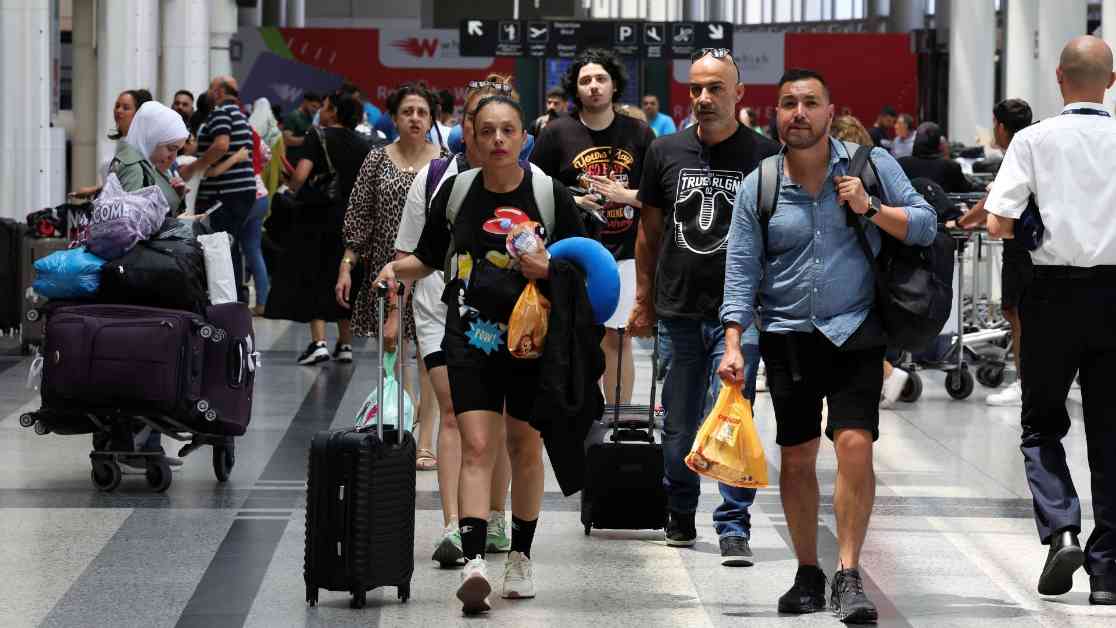Several Western governments, such as the United States, the United Kingdom, and France, have advised their citizens to leave Lebanon immediately due to escalating tensions in the Middle East following the assassination of Hamas’s political leader Ismail Haniyeh, which Iran blames on Israel and the US.
The recent killings of Haniyeh in Tehran and Hezbollah’s military chief Fuad Shukr in Beirut have sparked threats of retaliation from Iran and the “axis of resistance.” The situation has led to increased fears of a broader regional conflict involving Lebanese group Hezbollah, Hamas, and the Israeli army.
In response to the escalating situation, the US has announced plans to deploy additional warships and fighter jets to the region. The US embassy in Beirut has urged American citizens to leave Lebanon as soon as possible, emphasizing the need to have contingency plans in place in case they choose to stay.
Similarly, the UK’s Foreign Office has advised British nationals in Lebanon to depart immediately while commercial travel options are still available. The French Ministry for Europe and Foreign Affairs has also issued a travel advisory urging its citizens in Lebanon to leave promptly to avoid the risk of being caught in a military escalation.
The heightened tensions have prompted major airlines to suspend flights to Israel, Iran, and Lebanon, causing disruption for travelers. Many Lebanese residents, including immigrants and vacationers, are seeking to leave the country before the situation worsens further.
The ongoing conflict has already resulted in rocket attacks from southern Lebanon into northern Israel, with Israeli airstrikes reported in southern Lebanon as well. Iran has expressed expectations for Hezbollah to target deeper into Israel, signifying a potential escalation of hostilities.
In Gaza, Israeli airstrikes have targeted tents housing displaced Palestinians, resulting in casualties and further escalating the humanitarian crisis in the region. The continued violence has taken a heavy toll on the Palestinian population, with thousands killed and wounded in the conflict.
As the situation in the Middle East remains volatile, governments and international organizations are closely monitoring developments and working to ensure the safety of their citizens in the region. The risk of a wider conflict involving multiple parties underscores the urgent need for diplomatic efforts to de-escalate tensions and prevent further violence in the region.



























